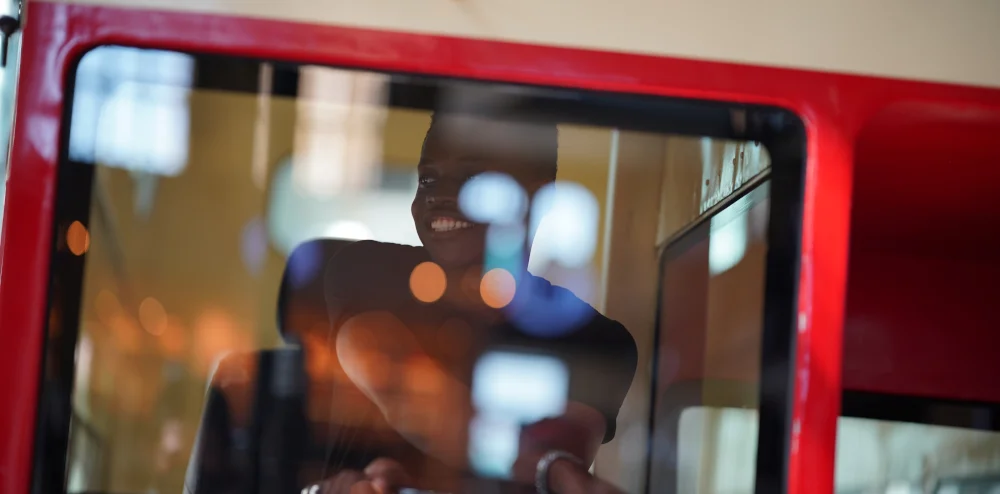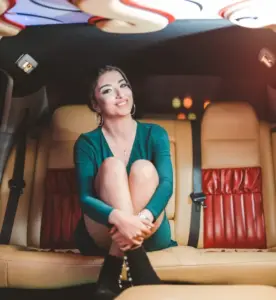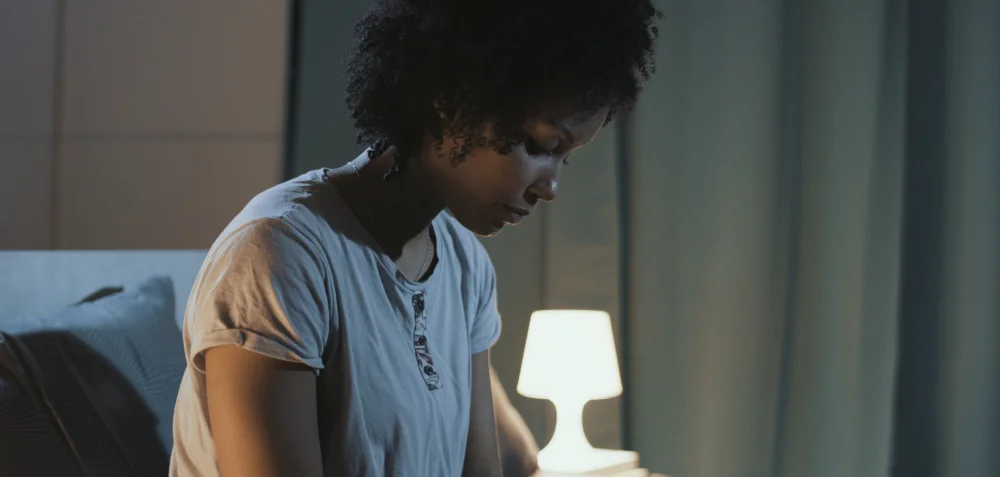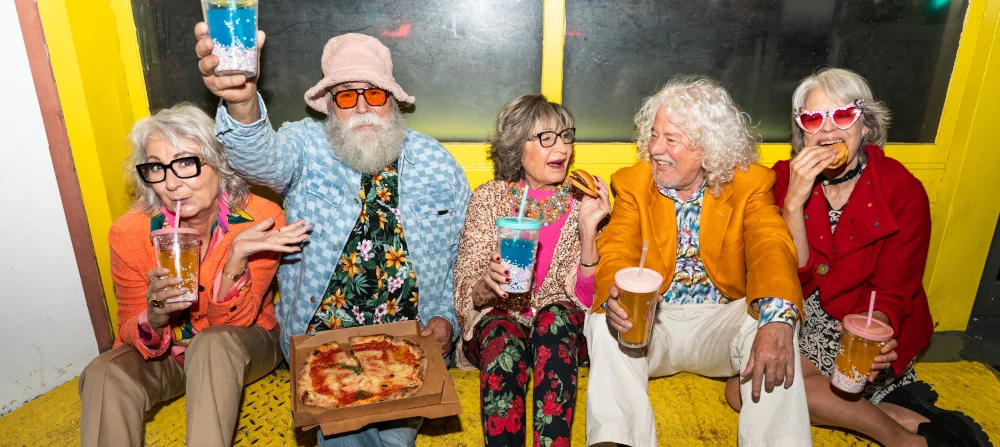
The sun has long since set by the time the last casino bus pulls out of a half-lit rank in Germiston or Bellville. These aren’t the slick, branded coaches you might picture ferrying tourists in Vegas or Monaco. South Africa’s overnight casino buses are something else entirely, half-commuter, half-luck-chaser. And the people who ride them? Not tourists, not quite gamblers in the flashy sense either. They’re pensioners, night-shift workers, quiet hustlers, all packed into cracked vinyl seats under fluorescent light, chasing something more intangible than money.
It’s just after midnight. The engine growls. Someone up front has a flask of tea, someone else tucks a phone into their sock for safety. The road ahead flickers between highway and ghost town, service stations and toll gates. The buses follow familiar routes, Joburg to Gold Reef, Cape Town to GrandWest, Durban to Sibaya. No matter the province, the vibe is the same, hushed conversations, a thin line between hope and habit.
For many, these rides aren’t about getting rich. It’s ritual. R150 for the bus, a free meal voucher once you arrive, maybe R100 in free chips or credits. It’s the cheapest night out some people can manage, especially in cities where regular nightlife feels too expensive or too risky. Lindiwe, a 62-year-old regular on the Soweto to Goldrush bus, says it’s less about winning and more about not feeling stuck. “At home, same soapies, same stories,” she shrugs. “On the bus, we move. Even if I lose, I moved.”
That feeling, of moving through the night with purpose, is something unique. Taxi ranks fall silent, shebeens close their shutters, but the casino buses roll on. In a country where daylight often brings more questions than answers, there’s something powerful about chasing luck in the dark.
These buses aren’t glamorous. Upholstery patched with tape, a radio that only catches half a signal, drivers who’ve memorised every pothole on the N3. But there’s an odd dignity to it. Rows of faces lit by the blue glow of phones, people tracking football scores, checking WhatsApp groups. Some sleep. Others talk about past wins, the auntie who hit R20,000 on the slots last year. The uncle who blew it all in one sitting. These stories aren’t bragged, they’re swapped like old township legends.
And then there are the in-between stops. Places like the Engen station off the N1, where the bus pauses for twenty minutes. Smokers gather. Kotas get unwrapped. It’s these in-between moments that give the journey texture. Someone might sell beaded necklaces from a plastic bag, someone else might be hawking cold drinks or cellphone covers from the boot of a battered Corolla. A moving economy, wrapped around a moving dream.
By the time the bus pulls into the casino, it’s usually 3 or 4 a.m. The air feels sharper. Security staff waiting with their usual routine smiles. The casino lights never switch off, and neither does the sound, a low mechanical hum of machines, chips clinking, screens flashing. People scatter, some head straight for their favourite Electronic Bingo Terminals, others to the tables. A few peel off towards the lounge, just to sit. For those who’ve been riding these buses for years, there’s no rush. The money lasts longer if you take your time.
But not everyone’s here for the thrill. Some come just for the free breakfast. Or the social aspect. Mabutho, 47, describes himself as a “non-gambler gambler.” “I don’t play much anymore,” he says. “But I like watching. The people. The stories. Everyone chasing something.” His brother once won enough to buy a second-hand Golf, which now sits outside their house with a cracked windshield and half-deflated tyres. “That’s casino life,” he laughs. “Up today. Flat tomorrow.”
 It’s also about safety. For a lot of older players, travelling in a group feels safer than taking a lone taxi or walking through downtown streets after dark. There’s an unspoken code on these buses, look after each other. If someone nods off too deep, their neighbour nudges them awake. If someone’s win gets too big and they start flashing it around, a quiet word pulls them back. There’s a sense of shared understanding. Everyone knows both the dream and the risk.
It’s also about safety. For a lot of older players, travelling in a group feels safer than taking a lone taxi or walking through downtown streets after dark. There’s an unspoken code on these buses, look after each other. If someone nods off too deep, their neighbour nudges them awake. If someone’s win gets too big and they start flashing it around, a quiet word pulls them back. There’s a sense of shared understanding. Everyone knows both the dream and the risk.
By dawn, the mood shifts again. Faces slack with tiredness. Winnings cashed out, or not. The same bus, same driver, same cracked vinyl. Now, though, the stories on board are slightly heavier, sighs of near misses, muttered replays of bets that didn’t quite land. Plastic bags rustle with takeaway boxes from the casino buffet. And somewhere at the back, always, is someone counting folded bills, silent, careful, already planning the next trip.
For the casinos themselves, these buses are part of the business model. Get players in the door, even if they arrive with small budgets. Goldrush Group and others understand the value of this steady, low-key clientele. It’s not about whales or high rollers, it’s about rhythm. About keeping the machines humming and the floors moving, hour after hour.
Yet there’s something larger at play here too. In a country with such visible wealth gaps, the overnight casino bus becomes a kind of social equaliser. Everyone’s the same when they’re hunting luck at 4 a.m. It doesn’t matter if you arrived in a Range Rover or a borrowed pair of sneakers, once you step into the glow of those machines, it’s all up to chance.
And when the bus finally pulls back into the township or suburb it came from, just as the city starts to wake, there’s a quiet poetry to it. Life resumes. Children off to school. Workers grabbing coffee. And a group of weary gamblers stepping off the bus with plastic bags, paper vouchers, or simply the stories of another night spent chasing something just out of reach.
Maybe that’s why the last casino bus keeps running. Not because everyone thinks they’ll get rich, but because in a world full of closed doors and loaded dice, it offers one simple, honest thing, a ride into the night, and a ride back home.







